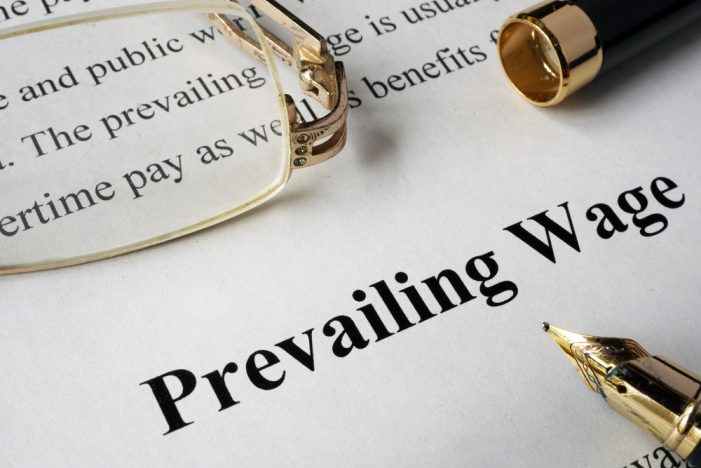By Fenix Suriel
Prevailing wage laws play a critical role in New York City’s labor market, particularly in the construction and public works sectors.
According to New York City Comptroller Brad Lander, nearly 1,600 workers are owed over $4 million in funds from prevailing wage settlements with companies that worked on City-funded projects across the five boroughs. This staggering number reveals just how important it is that workers know the laws that protect them.
But what exactly are prevailing wage laws?
A prevailing wage is a fixed pay rate that is compensated to workers for each trade or occupation. It is a mandated wage or salary that a worker is owed for a particular job. Prevailing wage laws ensure that workers on government-funded projects are compensated fairly, reflecting the local standard for wages and benefits.
No workwear should receive less than the prevailing wage for his position. The wage amount is set annually by the New York City Comptroller.
These laws are meant to protect workers from exploitation and create a level playing field for contractors. They ensure competition is based on efficiency and quality, not on who can underpay their workforce.
The prevailing wage includes both an hourly wage and supplemental benefits such as health insurance, retirement contributions, and vacation time. These rates are updated annually and vary based on job classification, trade, and location.
The modern framework for prevailing wage law began with the Davis-Bacon Act, signed into law in 1931 during the Great Depression.
In New York City, prevailing wages are established by the New York State Department of Labor (NYSDOL) and enforced under Article 8 and Article 9 of the New York Labor Law.
Article 8 covers the construction, reconstruction, or maintenance of public buildings and infrastructure, while Article 9 applies to building service workers in public properties.
According to the office of the comptroller, the prevailing wage for a bricklayer on any NYC project is $59.09. That wage is standard for any work taking place between July 2025 and June 30th, 2026. If a worker is paid under this standard at any point, that worker has a right to hold the contractor responsible.
Related Article: Comptroller Lander Secures $650K in Back Wages & Benefits from 160 Madison Ave LLC for 421-a Prevailing Wage Violations | Workers World Today
Failure to meet these wage obligations isn’t just a technical violation but a crime. Any willful violations of prevailing wage laws may result in debarment from being able to bid on public work projects.
As one of the nation’s most expensive and densely populated urban centers, NYC depends on a skilled and reliable labor force to maintain and expand its infrastructure.
Although the prevailing wage is still owed, earlier this year, Lander issued a press release saying his office had settled over $9 million for workers who were owed back pay.
As the city continues to grow and invest in infrastructure, enforcing prevailing wage laws is essential to maintaining equity and sustainability in the labor market.
In 2023, Kathy Hocul signed legislation S.4887/A.5608 into law. Hocul was “proud” to sign the legislation she hopes will “continue to provide construction workers with fair wages and allow them to support themselves, their families, and our local economy.”
Recently, Assemblyman Harry Bronson and State Senator Jessica Ramos introduced legislation to widen the scope of laborers working private contracts. The bill is still in the Committee Assembly.
Workers have shown strong support for the bill. Just last month, the New York State Building & Construction Trades Council (BCTC) rallied outside the State Capitol building in Albany.

